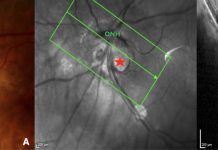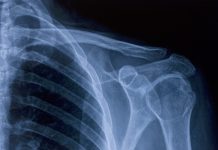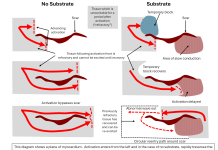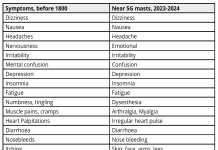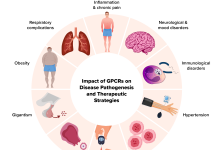Open Access Government produces compelling and informative news, publications, eBooks, and academic research articles for the public and private sector looking at health, diseases & conditions, workplace, research & innovation, digital transformation, government policy, environment, agriculture, energy, transport and more.
Home 2025
Archives
Male victims of intimate partner violence: Insights from twenty years of research
Denise A. Hines, Ph.D., Enochs Endowed Professor of Social Work at the College of Public Health, George Mason University, explores the often-overlooked issue of male victims of intimate partner violence (IPV).
A call to health policymakers for new directions in suicide prevention and research
Konrad Michel, Professor Emeritus and suicide researcher, argues for a shift away from the traditional medical model of suicide prevention and emphasizes the need to reach the many who don’t see their suicidal thoughts as a mental health issue.
Peripapillary Intrachoroidal Cavitation, a masquerade of normal-tension glaucoma
Dr Adèle Ehongo discusses peripapillary intrachoroidal cavitation (PICC), a masquerade of normal-tension glaucoma.
Examining childhood multimorbidity: How crucial is studying early life multimorbidity?
Understanding multimorbidity in childhood, where physical and mental health conditions coexist, is crucial. This interview with Dr. Mark Ferro, Canada Research Chair in Youth Mental Health at the University of Waterloo explores its unique challenges compared to adult research, the need for integrated care, key predictors, and vital research directions.
Understanding the role of immune dysregulation in MS
Despite significant progress in MS-related research, challenges remain. Dr Belinda Kaskow and Professor Allan G Kermode from the Perron Institute and The University of Western Australia explore the benefits of investigating the early stages of immune dysregulation in MS to enhance prevention strategies.
Rethinking papillary thyroid cancer: Why “low risk” isn’t always low impact
Oliver Bathe, Professor of Surgery and Oncology at the University of Calgary and CEO of Qualisure Diagnostics, urges us to rethink papillary thyroid cancer, noting that “low risk” isn’t always synonymous with low impact.
Regenerative medicine and osteoarthritis: SVF, exosomes and beyond
Torbjörn Ogéus from Stockholms Led- & Smärtspecialist guides us through the evolving science of stromal vascular fraction, exosomes, and beyond in regenerative medicine and osteoarthritis.
Targeting the brain for the treatment of type 1 diabetes
Michael W. Schwartz, MD, explains the role played by the brain as a cause of elevated blood sugar and related metabolic derangements in type 1 diabetes, and how therapeutic targeting of this brain system can eliminate the need for insulin therapy in animal models.
Sudden death is the most catastrophic manifestation of heart disease
Any disease affecting the heart muscle (“myocardium”) is a potential cause of sudden cardiac death. Such diseases include recovery following a heart attack (myocardial infarct “MI”) and diseases, such as Hypertrophic and Dilated Cardiomyopathies (HCM, DCM) together with a host of rarer diseases.
Defining Electromagnetic Hypersensitivity (EHS)
Michael Bevington, Chair of Trustees at Electrosensitivity UK, examines the history of Electromagnetic Hypersensitivity (EHS) over the past 275 years, highlighting key 18th-century discoveries and early reports of health issues related to electromagnetic fields (EMFs).
Chronic pain and healthcare education in Canada: Bridging the divide
Hansel Lui from the Michael G. DeGroote Institute for Pain Research and Care discusses inadequacies in healthcare education regarding chronic pain management in Canada and opportunities to close these gaps.
Tracing evolution’s blueprint: Minimal genome life and the engineering of synthetic endosymbiosis
Roksana Riddle and Christopher H. Contag from Michigan State University discuss the concept of endosymbiosis, how it has evolved, and present strategies to engineering endosymbionts and their applications in developing innovative therapies.
CYP genes and haplotypes in personalised medicine
Brian Tait, Chief Scientific Officer at Haplomic Technologies Pty Ltd, focuses here on CYP genes, haplotypes, and their applications in personalised medicine.
Revolutionising indoor air quality to stop pandemics with Germicidal Ultraviolet (GUV) technology
Indoor air quality is a silent public health crisis, harbouring pathogens that contribute to billions of illnesses annually. Addressing this requires urgent attention, and Germicidal Ultraviolet (GUV) technology offers a powerful solution to combat airborne threats.
Can premenstrual symptoms help improve women’s healthcare?
Professor Belinda Pletzer from Paris Lodron University of Salzburg explores if the assessment of premenstrual symptoms can help improve women’s healthcare.
Healthy aging: How science and daily habits preserve brain function
Key nutrients like omega-3 fatty acids, curcumin, and NAD+ are important for maintaining cognitive function, but their effective delivery to the brain is hindered by the blood-brain barrier (BBB) and age-related declines in nutrient transport. Dr Rebecca Crews and Heather Makar explore the importance of overcoming these delivery challenges to enhance strategies for cognitive longevity and healthy aging.
Training your genome
Founder and President of InsideOutBio, Alan Herbert, explores the evolving understanding of genome information storage, and the significance of repetitive sequences called flipons in genome training. These flipons can alter their shape without breaking DNA and are vital in cell biology, especially in responding to environmental stress.
AI-driven innovations in GPCR ligand synthesis for treating inflammatory diseases
This article explores the significance of G Protein-Coupled Receptors (GPCRs) in therapeutic drug development and strategies for advancing GPCR-targeted therapies, including the use of agonists, antagonists, biased agonism, and allosteric modulators.
Unlocking the brain: Pioneering psychiatric genomics at the University of Arizona
Psychiatric disorders challenge us deeply. At the University of Arizona, researchers dissect their molecular roots, focusing on genomics. They aim to decode miRNA’s role in conditions like depression, using advanced analysis to forge a path towards personalized mental health care. Find out more in this exclusive Q&A.
Estimating the impact of cigarette smoking on life expectancy from 1950 to 2000
In this study, Theodore R. Holford from the Department of Biostatistics at the Yale University School of Public Health estimates the impact of cigarette smoking on life expectancy between 1950 and 2000.



